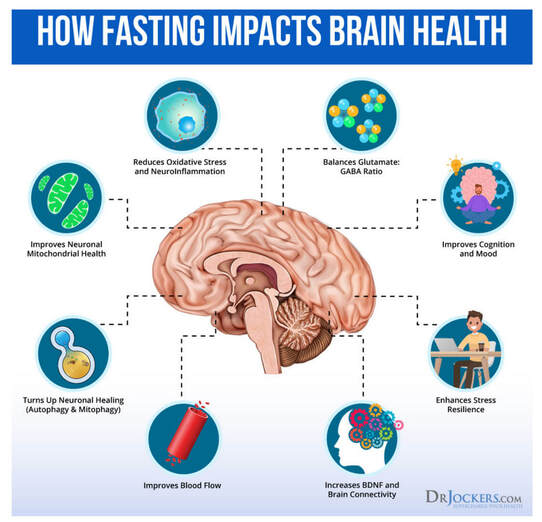Intermittent fasting describes a dietary program where you avoid consuming food for a window of time or significantly restrict calories a few times per week. This allows your body to release energy that is stored as fat and may:
So, what does the research tell us? This latest study was conducted in mice that were fed on a time-restricted schedule and involved the use of intermittent fasting practices to modulate circadian rhythms. The internal circadian timekeeping system modulates cognition and affective function by projections from the master circadian clock. Understanding the basic principles of circadian and wakefulness-sleep physiology can help to recognize how the circadian system modulates human cognition and influences learning, memory, and emotion. In “Circadian modulation by time-restricted feeding rescues brain pathology and improves memory in mouse models of Alzheimer’s disease,” scientists sought to show that by disrupting circadian rhythms or the biological timing processes, it might be possible to better manage Alzheimer’s symptoms. Previously, it was thought that the circadian disruptions noted in Alzheimer’s patients were caused by neurodegeneration – but now, it appears that neurodegeneration may in fact be caused by these disruptions to our biological clock. Some of the study details noted:
IMAGE CREDIT: from the article by Nick Moss at https://www.functionalneurohealth.com/post/7-key-benefits-of-intermittent-fasting-for-brain-health And still more research….
There are numerous studies that offer similar testaments to the potential power of intermittent fasting in brain health and even immune health. Citing decreased inflammation, improved vascular health, decreased amyloid accumulations, a research team statedthat “intermittent fasting over the years will potentially reverse or delay the pathological process in Alzheimer’s disease.” Another investigation looked at the association between vascular dementia and dietary regulation, finding that intermittent fasting could lead to better control of energy metabolism, improvements in brain insulin resistance, and suppressed neuroinflammation. A recent study in Nature Aging highlights intermittent fasting as a potential way to decrease the progression of Alzheimer’s disease in mice through changes to the gut microbiota. Exploring the role of intermittent fasting on brain metabolism relevant to neurodegeneration that can occur in obesity and diabetes diagnoses, scientists published their promising results last year and urged for further research to explore this important area. As we continually emphasize, the role of nutritional approaches and dietary considerations must be a key element in any treatment protocol. The foods we eat, and how we consume these, can clearly affect the quality of our cognitive function and many of our body’s processes, even in the absence of a known disorder. We encourage you to learn more about intermittent fasting and whether this type of approach is appropriate for your health today and tomorrow. And please let us know if you have questions or need to schedule a visit – we are here to help! Please visit the blog library on our website and use the search function on each page to find additional related reading: https://www.suzannegazdamd.com/ In health and healing, Dr. Suzanne Gazda References: Desplat, P. et al. Circadian modulation by time-restricted feeding rescues brain pathology and improves memory in mouse models of Alzheimer’s disease. Cell Metabolism. (2023). https://www.sciencedirect.com/science/article/pii/S1550413123002735 Gazda, S. Intermittent Fasting. SuzanneGazdaMD.com. (2019). https://www.suzannegazdamd.com/blog/intermittent-fasting Wright KP, Lowry CA, Lebourgeois MK. Circadian and wakefulness-sleep modulation of cognition in humans. Front Mol Neurosci. 2012;5:50. Published 2012 Apr 18. doi:10.3389/fnmol.2012.00050
0 Comments
Your comment will be posted after it is approved.
Leave a Reply. |
AuthorDr. Suzanne Gazda, Integrative Neurology Archives
February 2024
Categories |


 RSS Feed
RSS Feed